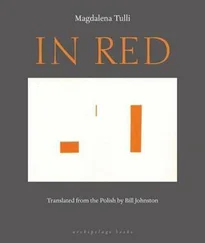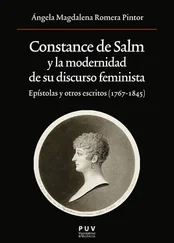Magdalena Tulli - Flaw
Здесь есть возможность читать онлайн «Magdalena Tulli - Flaw» весь текст электронной книги совершенно бесплатно (целиком полную версию без сокращений). В некоторых случаях можно слушать аудио, скачать через торрент в формате fb2 и присутствует краткое содержание. Год выпуска: 2007, Издательство: Archipelago Books, Жанр: Современная проза, на английском языке. Описание произведения, (предисловие) а так же отзывы посетителей доступны на портале библиотеки ЛибКат.
- Название:Flaw
- Автор:
- Издательство:Archipelago Books
- Жанр:
- Год:2007
- ISBN:нет данных
- Рейтинг книги:5 / 5. Голосов: 1
-
Избранное:Добавить в избранное
- Отзывы:
-
Ваша оценка:
- 100
- 1
- 2
- 3
- 4
- 5
Flaw: краткое содержание, описание и аннотация
Предлагаем к чтению аннотацию, описание, краткое содержание или предисловие (зависит от того, что написал сам автор книги «Flaw»). Если вы не нашли необходимую информацию о книге — напишите в комментариях, мы постараемся отыскать её.
Flaw — читать онлайн бесплатно полную книгу (весь текст) целиком
Ниже представлен текст книги, разбитый по страницам. Система сохранения места последней прочитанной страницы, позволяет с удобством читать онлайн бесплатно книгу «Flaw», без необходимости каждый раз заново искать на чём Вы остановились. Поставьте закладку, и сможете в любой момент перейти на страницу, на которой закончили чтение.
Интервал:
Закладка:
Inconveniences, like poorly made clothes, when allocated without discussion and without being tried on, become a public sign of disgrace too painful to accept and too intense to simply ignore. The wave of bitterness that rises from disillusion never recedes. And the bitterness, in the form of a chronic anger, circulates in a broad orbit, contaminating thoughts and deeds. There is no answer to the question of how a switchblade found its way into some pocket, or where a set of brass knuckles came from. Moreover, it can be seen at a glance that the knife and the brass knuckles are not fake. They are the real thing, unlike other props such as imitation rings or bouquets of artificial flowers, which are present in abundance. Unlike the cunningly fashioned reproduction marble in different varieties, unlike the high-quality hardwoods made from common timber with the aid of stains and varnishes, these troubling objects are free of the stigma of hole-and-corner economies; the best materials were used in their manufacture.
It is not by chance that no one here, not even the policeman, is allowed to bear arms. I have not ordered any guns; they do not appear in the invoices and are not to be found in the warehouses. Yet revolvers are nevertheless in circulation, in most cases properly cleaned, loaded, and ready for use. They are hidden in dark drawers. Where have they come from? It’s obvious they did not originate in the tailor’s shop, or even at the carpenter’s. And since they exist, they must have been brought by some route. Perhaps these guns have always circulated between stories, passed from hand to hand — smuggled goods, bought under the counter in forbidden regions at the juncture of various tales, in the place where stories interpenetrate, stirred up by their own feverishness. The price of the questionable profits sought by the overall-clad workmen is the despair and rage of the secondary characters. But for various reasons, for as long as possible all is consigned to oblivion, and no one insists on penalties.
I have many motives for yielding, surrendering, for humbling myself in the face of arrogance and unparalleled chicanery — for giving up any idea of scrutiny, quietly acquiescing, accepting false invoices as genuine and paying for fictitious labors and purposely failed jobs planned as alibis for other dealings, under-handed and quietly profitable. A solemn insistence on comparing the invoices with the actual state of things will do no good; nor is there any use in longing for the unambiguousness of arithmetic, or a compulsive predilection for bookkeeping. The invoices, for instance, list whole tons of silver nails, the price of which suggests that this specification is quite literal; the expenditure strikes one at once as insanely wasteful, as if these kinds of nails were being required even in the construction of scaffolding made from untreated pine planks. The simple act of counting pallets, boxes, and items disturbs the calm of the warehouses. It provokes the appearance and disappearance of objects as though out of spite, thwarting efforts at invigilation. Because of this, it is impossible to ascertain beyond a doubt whether anything really existed or whether it merely featured in the accounts, like last year’s snows, like the first rays of the springtime sun, summer lightning storms, or autumn mists.
Who does it all belong to, and whose property is being stolen? To this straightforward question, which naturally suggests itself — someone has said “I” several times already — there is no honest answer. Concealing oneself is exhausting, and in the long run quite impossible. But the word “I” explains nothing here. Alone, it means too little. Less than a signature on a promissory note — no more than a crooked initial left by some hand on a dilapidated wall. This single letter contains so very little that it belongs to everyone and to no one. A vague gesture in the air directing attention to a button at the throat will not add much, yet at the same time it cannot be made any more comprehensible. Even the image of a silhouette in movement, devised from the cut and style of a garment, would merely be a starting point for facile, superficial associations. What do I need all this for? one might ask suspiciously; what’s the use of events, or of the tribulations of the characters embroiled in them? In the face of such questions, there is nothing to do but duck, as if dodging a rock hurled from a street corner. If it struck you on the head, it could kill outright. But it will probably miss and only whistle past the ear.
GIVEN THE DIMENSIONS OF THE SQUARE, no more than two stops will be needed. One of them can be located on the north side, the other on the south — the former in front of the local government offices, the latter outside the boys’ grammar school. In the deserted space, a character who plainly belongs to the previous day is presently staggering along. His body, taken from goodness knows where, and in its own way utterly without volition, is a perfect match for the cut of the jacket. Even the disdainful glint in his eye is merely the reflection of a dime-store signet ring. He is a student, drunk. He vomits as he holds on to an iron railing. The streetcar he stepped down from is already moving off towards the government offices. Left behind, rolling about under the seats is an abandoned stick — a handy device for smashing windows. Even if the student flunked his Roman Law exam yesterday, he already managed to forget about it, because afterwards he put his heart and soul into roaming the streets all day with his pals, following which they spent half the night eating, drinking, and brawling in a club. And what if I am that student? My ears are still ringing with the sound of broken glass, while my stomach is convulsed by painful spasms. Though this particular moment is immensely disagreeable, some subsequent one is sure to bring relief. His only regret was losing the stick, which wouldn’t have happened but for the crush of gloomy thoughts immediately beneath his diaphragm — thoughts that were easily ingested yet indigestible, and were violently seeking a way out.
Early in the morning, before the clear air fills with the dust and fug of the later hours, the policeman begins his rounds of the square. His footsteps echo. Pigeons flap out of his way and fly off to the ledges of the apartment buildings. The policeman pauses outside the government offices, lifting his head and gazing at the sky as if he were trying to figure out which way the wind was blowing or whether there would be rain in the afternoon. And now the streetcar is coming again. Amid a squeal of brakes it pulls up at the stop outside the offices. A group of airmen emerges — the first wearing what is undoubtedly a general’s uniform, the second a major, after the major a captain, and bringing up the rear a young adjutant with the rank of lieutenant. They stand and look about. As they peer down the side streets the major explains something to them, the general shrugs, the captain is upset and has something to say too, while the lieutenant remains silent, looking from one to the other till eventually the major shrugs his shoulders in a gesture of helplessness. There has evidently been a troublesome mistake concerning the coordinates, and perhaps also the calendar: where the hell is the airfield they were supposed to visit, with its hangars, its planes, and its mess hall, in which there would be coffee in gaudy paper cups, a pinball machine with flashing colored lights, and a jukebox playing loud music at the drop of a coin? Something had gotten mixed up in their itinerary, and at this early hour it could not be corrected. Weary and sleepy, they come to a halt in front of a hotel, allow the general to enter first, then disappear in turn through the door.
In the meantime, the streetcar has completed one circuit and is in the middle of another. At the stop in front of the grammar school, a maid is just getting out. She’s carrying a basket with vegetables and a chicken to make soup for the notary and his family. It may be that the policeman would gladly have taken the basket and carried it up the kitchen steps for her, especially if he had been younger or in his civilian clothes, but the gravity of his uniform and the fact that he is on duty does not permit it, so he merely snaps his fingers to the shiny peak of his cap. The maid pouts fetchingly and casts him a lingering glance, but she walks on and vanishes into the entranceway at number seven. It makes no difference to her what whole this neighborhood is taken from, of which city it is supposed to be a part. It should be added that the griffin or eagle on the policeman’s cap is a miniature of the national emblem from over the entrance to the government offices — one of those numerous predators, white, black, silver, two-headed, or whatever, that are customarily found on the façades of public buildings. Their precise pose and the shape of their talons and wings depend simply on where the story is taking place. The policeman, taken in by the sight of bell towers and steeples in the background, above the rooftops, in the distance, indistinct and so not wholly self-evident, would also be fully entitled to know, would he not? But he never asks, being content with the reassuring sound of the word “hereabouts.” The story is not taking place here or there. It fits in its entirety into itself as into a glass globe containing all that is needed for every conceivable eventuality.
Читать дальшеИнтервал:
Закладка:
Похожие книги на «Flaw»
Представляем Вашему вниманию похожие книги на «Flaw» списком для выбора. Мы отобрали схожую по названию и смыслу литературу в надежде предоставить читателям больше вариантов отыскать новые, интересные, ещё непрочитанные произведения.
Обсуждение, отзывы о книге «Flaw» и просто собственные мнения читателей. Оставьте ваши комментарии, напишите, что Вы думаете о произведении, его смысле или главных героях. Укажите что конкретно понравилось, а что нет, и почему Вы так считаете.












